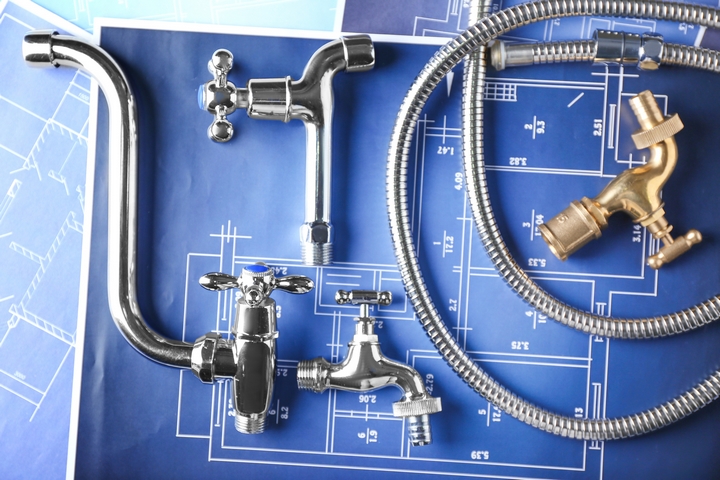Ensuring that your plumbing is in excellent condition is very important. It becomes even more crucial during the winter months when temperatures can plummet and put your pipes in danger of freezing. Frozen pipes can burst, leading to flooding, expensive plumbing, and home maintenance repairs.
Maintaining your plumbing throughout the year is important but performing regular inspections during the winter months is crucial. Fluctuations in temperatures and numerous other seasonal factors make your pipes most vulnerable at this time of year. To prevent burst pipes, clogged drains, and damaging floods in your home, be sure to give extra care to your plumbing when old man winter comes to town.
Fortunately, catastrophes such as these can be avoided by being proactive. You should know how to properly care for your pipes when the weather gets cold.
Try these nine winter plumbing tips to help keep your pipes safe this winter:
Tip #1: Disconnect your outdoor hose

One of the first things you should do when the temperatures begin to drop is disconnect all of your outdoor hoses. These may be located on the outer walls of your home or inside your garage. Any leftover water trapped inside these hoses will freeze during the colder months. This can cause the hose to crack and result in your pipes bursting.
Tip #2: Turn off your outdoor taps

Your outdoor taps have a separate shut-off valve located inside your home. Turning off the water supply to these taps is essential and purging any remaining water from the outside pipelines before winter hits. These pipes are the most vulnerable to cold temperatures as they are exposed to the outdoors and can expand and contract with temperature fluctuations.
Tip #3: Insulate your pipes

Insulating your pipes will help keep them warm and prevent them from freezing. Pipes located in uninsulated homes, such as the basement, garage, and crawl spaces, are at risk of freezing. Pre-slit insulation can be purchased at your local hardware store. Spending an afternoon insulating your pipes is a quick and inexpensive way to keep your pipes warm all winter long.
Tip #4: Monitor your home’s temperature

Keeping track of your home’s temperature is crucial, especially while away. Smart home monitoring systems can send you alerts when your home’s thermostat drops below a pre-set range. This can warn you about plummeting temperatures, power outages, or cold snaps that could affect your pipes and potentially lead to leaks or flooding.
Tip #5: Clean out your p-traps

P-traps are located in the pipes below your indoor sinks. They act as a trap that prevents debris from flowing further down into your plumbing system. These p-traps should be cleaned out regularly to keep your sinks draining correctly after the holiday season is a perfect time to do this. Large holiday meals at Thanksgiving, Christmas, and New Year are often the cause of kitchen plumbing issues.
Tip #6: Install a heat cable

Heat cable is an excellent option for pipes vulnerable to cold temperatures. This flexible cable attaches to your pipes by clips or a tape backing and keeps them at a steady temperature, preventing freezing. This is a fast and inexpensive method to keep your pipes warm during the winter.
Tip #7: Turn off the water when you’re away

Escaping the cold weather and heading somewhere warm is an excellent way to spend the winter. Unfortunately, many people return home from their vacation to find their homes have been damaged from flooding caused by burst pipes. One of the best ways to avoid this catastrophe is to turn off your home’s water supply and drain all your taps before leaving.
Tip #8: Let your taps trickle during a power outage

Winter storms can cause power outages that can last for days in extreme cases. These outages can cause the temperatures in your home to plummet quickly and put your plumbing at risk. Turn on your taps and allow the water to trickle through them to prevent this. This will prevent pressure from building up in them. While it may cause your next water bill to be higher than usual, it will help keep pipes from cracking and bursting.
Tip #9: Inspect your plumbing regularly

Regularly inspecting your plumbing throughout the year is crucial for proper plumbing maintenance. Before cold weather hits, take some time to go through your home and visually check all pipes and faucets. Look for damage, corrosion, or leaks.
If anything seems unusual or in need of repair, contact your plumber right away. Being proactive about the health of your pipes can save you a significant amount of money and hassle in the long run.

